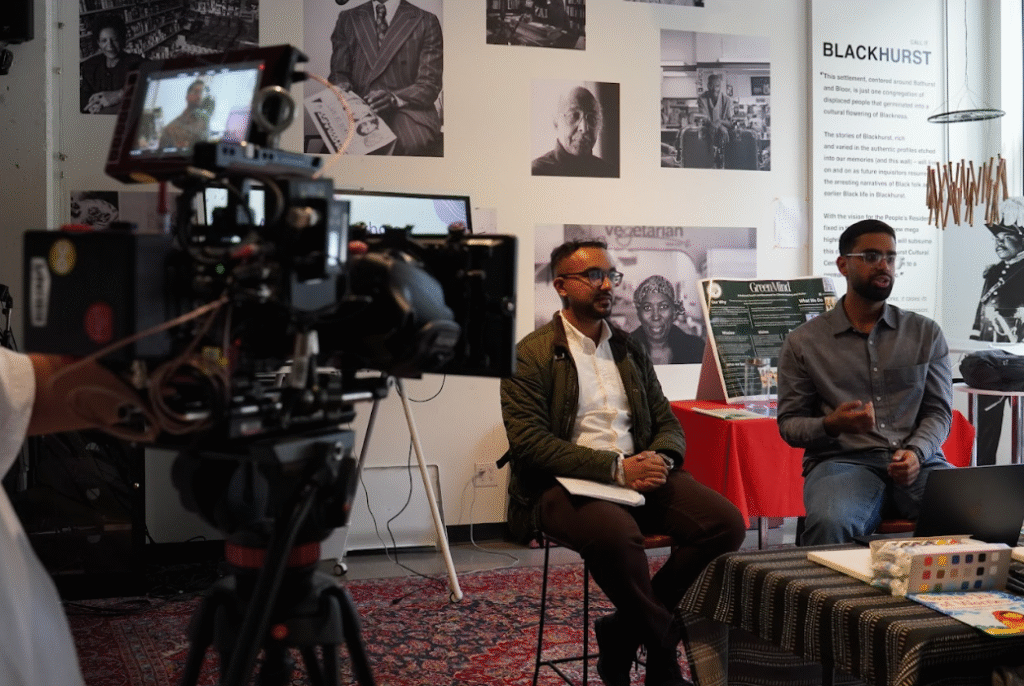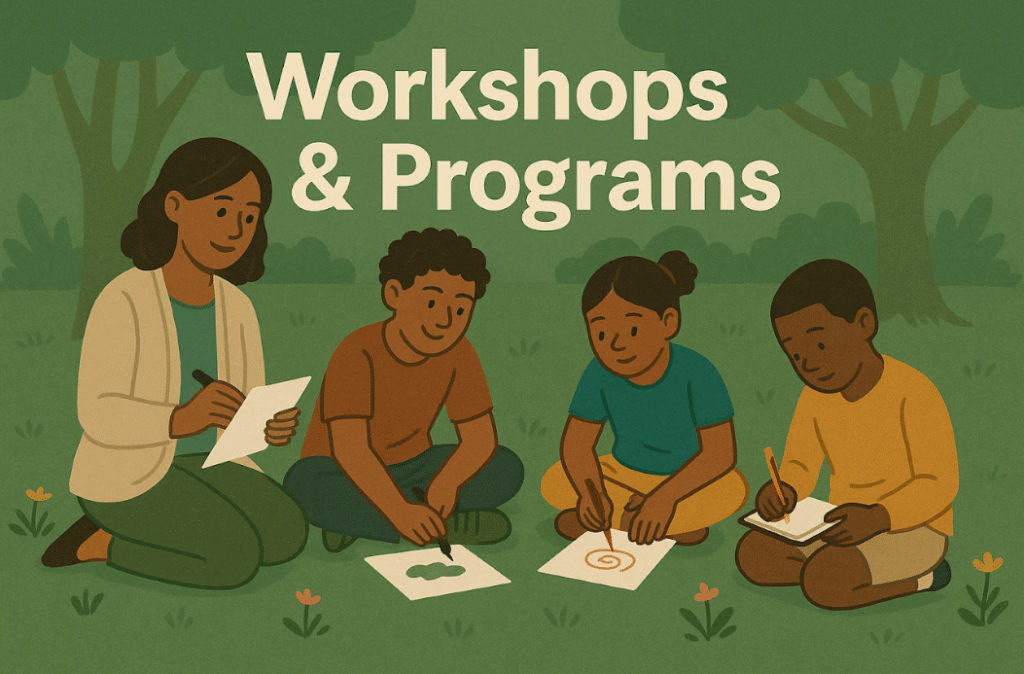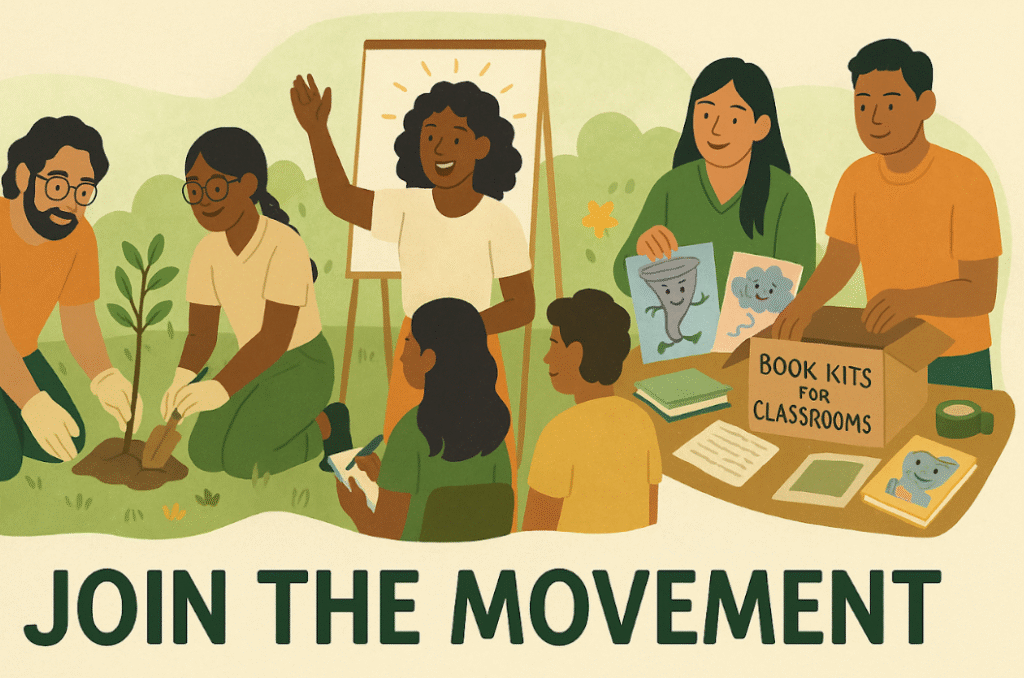Emotional Awareness.
Cultural Healing.
Climate Action.
At Green Mind, our workshops are designed to be more than educational, they are experiential, healing, and community-rooted. Each session supports youth in exploring their emotions, understanding the climate crisis, and stepping into action in a way that feels authentic and sustainable.
Led by trained youth facilitators and supported by educators, Indigenous advisors, and mental health professionals, our workshops meet young people where they are emotionally, culturally, and creatively.
Whether you’re a teacher, summer camp leader, or community organizer, these workshops create spaces where youth feel seen, heard, and inspired to lead with care.
What You Can Expect
● Trauma-informed and culturally grounded programming
● Bilingual delivery in English and French
● Designed for youth ages 10–19 with age-appropriate strategies
● Flexible format: In-person, virtual, or hybrid delivery
● Suitable for schools, summer camps, wellness days, leadership programs, and more
● Collaborative planning with your staff to adapt workshops to your group’s needs.
We believe that mental health and climate action go hand in hand and every session is crafted with compassion, inclusivity, and care.

Explore Our Workshops
Each Green Mind workshop offers a unique path to climate healing and empowerment, from emotional grounding to creative expression and youth-led action. Sessions are modular, flexible, and age-tailored, so you can select one or combine multiple for a deeper journey.

Who Facilitates Our Workshops?
All Green Mind workshops are delivered by trained youth facilitators who reflect the communities we serve. Many of our facilitators come from rural, Indigenous, immigrant, racialized, and 2SLGBTQIA+ communities, and bring with them lived experience navigating both climate-related distress and systemic barriers to mental health care. This experiential knowledge, combined with structured training, enables them to facilitate sessions with compassion, cultural humility, and authenticity.
Our facilitation team undergoes a comprehensive onboarding program that includes trauma-informed care, mental health literacy, age-appropriate engagement strategies, and inclusive practices. We are also guided by an interdisciplinary advisory group that includes mental health professionals, educators, and Indigenous Elders, who provide ongoing cultural guidance and help ensure that workshop content is safe, appropriate, and responsive to local contexts. We recognize the importance of honoring diverse knowledge systems, and we prioritize centering Indigenous voices and land-based teachings in relevant sessions.
Flexible Program Design and Pathways for Deeper Engagement
Recognizing the diverse needs of schools, youth programs, and communities, Green Mind workshops are intentionally designed to be modular, adaptable, and scalable. Sessions may be offered as standalone experiences or delivered as part of a longer series to deepen impact over time. For example, a school may choose to begin with “Feel It to Heal It” to support emotional awareness, followed by “From Worry to Action” to guide youth toward community engagement and advocacy.

We also offer customization to ensure workshops align with local priorities, student learning outcomes, or wellness frameworks. Our team is available to support planning for multi-session engagement, educator toolkits, and youth mentorship opportunities. Whether integrated into school mental health initiatives, leadership retreats, or cultural programs, Green Mind sessions are co-created with our partners to ensure they are relevant, meaningful, and rooted in equity.

Accessibility and Inclusive Participation
At Green Mind, we are committed to upholding accessibility and inclusion as non-negotiable values. We strive to ensure that every young person regardless of ability, learning style, identity, or background can meaningfully participate in our workshops. All sessions are designed with universal design principles in mind, and can be adapted for youth with cognitive, sensory, emotional, or physical accessibility needs.
Virtual workshops include live closed captioning, screen-reader-compatible materials, and options for ASL interpretation or language translation where available. In-person sessions are adaptable to various mobility and sensory needs, and facilitators are trained to recognize and accommodate neurodiverse learning preferences. We are always open to advance consultations with schools and program staff to tailor sessions appropriately, and we actively welcome feedback to make our programming even more accessible.
Evaluation, Feedback, and Measuring Impact
We believe that the youth voice should guide every stage of program development, delivery, and reflection. That’s why every Green Mind workshop includes an evaluation process rooted in care, consent, and equity. Participants are invited to complete short, age-appropriate reflections after each session, offering insight into how the workshop affected their understanding, emotional wellbeing, and sense of connection. These reflections are never mandatory and are designed to be accessible and non-intrusive.

For organizational partners, we offer anonymized summary reports highlighting key themes, participant feedback, and opportunities for continued engagement. These reports help schools, camps, and community organizations better understand the emotional and educational outcomes of the workshops. Where appropriate, participants can receive certificates of completion or engagement to support leadership development, volunteer hours, or personal growth tracking.
All evaluation methods are designed in alignment with trauma-informed, anti-oppressive, and culturally safe practices. Our goal is not just to measure outcomes but to learn from young people themselves, ensuring our work remains responsive, accountable, and community-informed.
